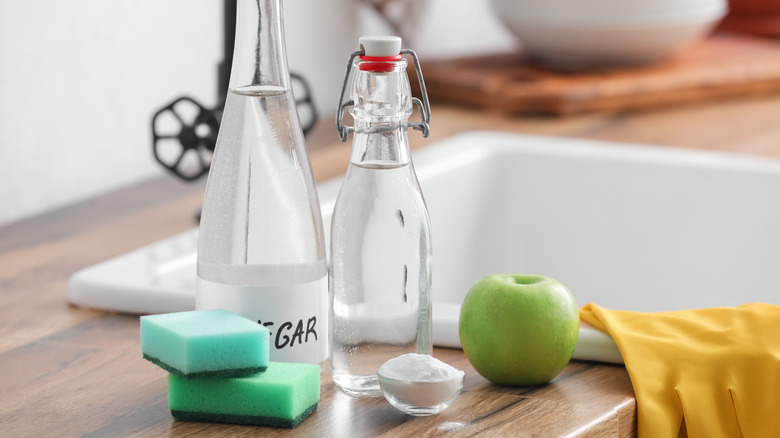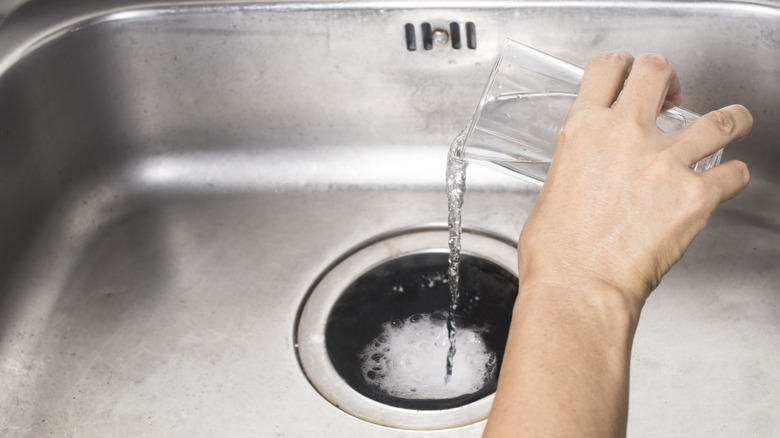This Vinegar DIY Is The Best Way To Clean Your Garbage Disposal
Vinegar is a champion ingredient in DIY home cleaning recipes, and it's one of the natural cleaning ingredients that you'll want a healthy stock of in your home. It's one of the first products you should reach for when you want to avoid commercial products with unwanted ingredients that are considered problematic when they end up in the environment. So when you're looking for a less toxic and cheaper way to remove the gunk from your garbage disposal, use vinegar alongside its bestie, baking soda, for a winning combination.
Many of the best DIY vinegar cleaning solutions for your home include baking soda in the mix. While vinegar is a gentle acidic cleaner that helps to dissolve grime, baking soda is an alkaline product that helps to clean grease. Baking soda also helps to rid garbage disposals of bad odors. This combo works well together to cut through garbage disposal buildup and wash it down the drain.
Cleaning your garbage disposal with vinegar and baking soda
To use this method to clean a garbage disposal, you'll need both baking soda and either white or apple cider vinegar, as well as a tea kettle full of boiling water. First, pour the baking soda into your garbage disposal — about a half-cup should do. Follow this with one to two cups of vinegar, and the mixture will produce a chemical reaction that causes fizzing. Allow the mixture to sit for several minutes before rinsing with a pot or kettle of boiling water.
Once you have a smell-free garbage disposal thanks to this cleaning method, you'll be able to move on to other projects. Vinegar can also be mixed with borax, vinegar's other best friend, when cleaning your kitchen's garbage disposal. However, if you find yourself needing to clean your garbage disposal frequently, you may want to take stock of your kitchen cleanup routines. While washing residue from dirty dishes into the disposal is to be expected, using this toothy sink appliance to get rid of bigger food pieces wastes a lot of water – instead, consider composting your food waste.

